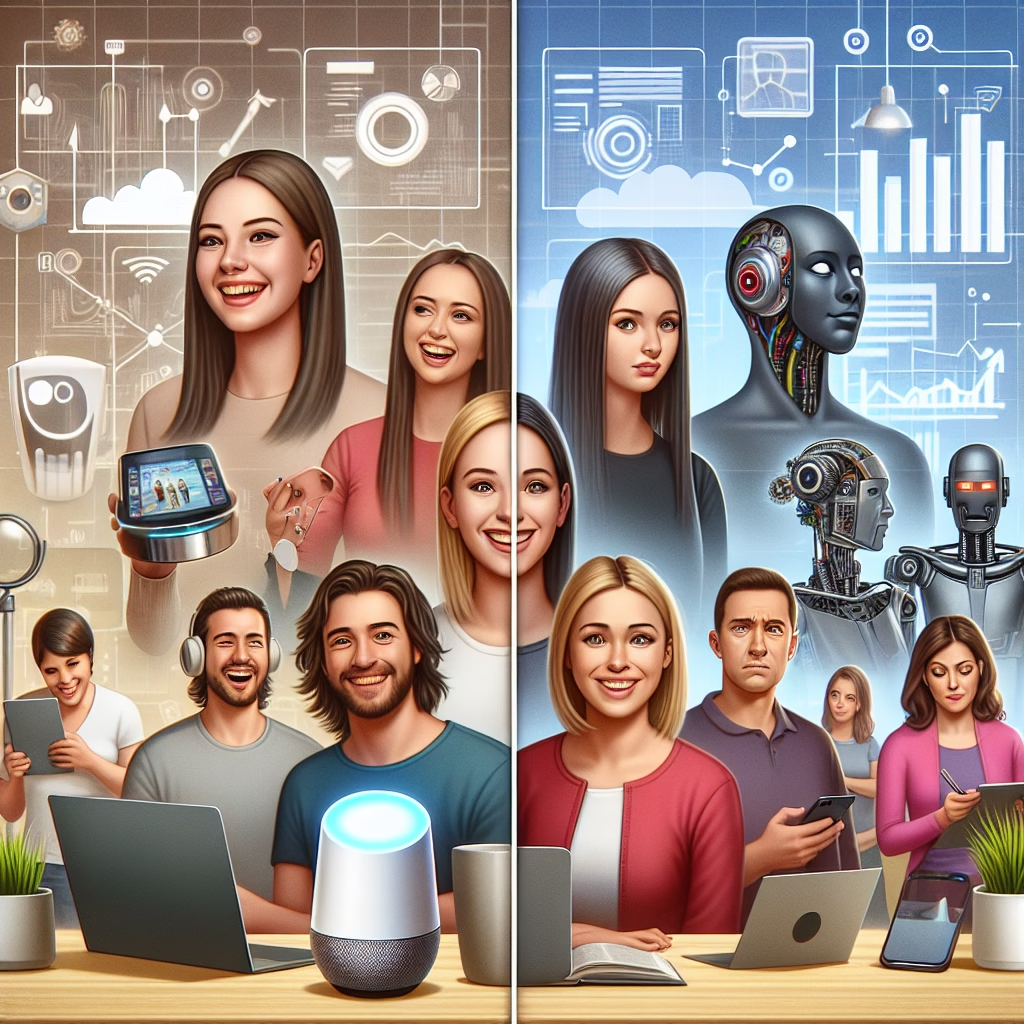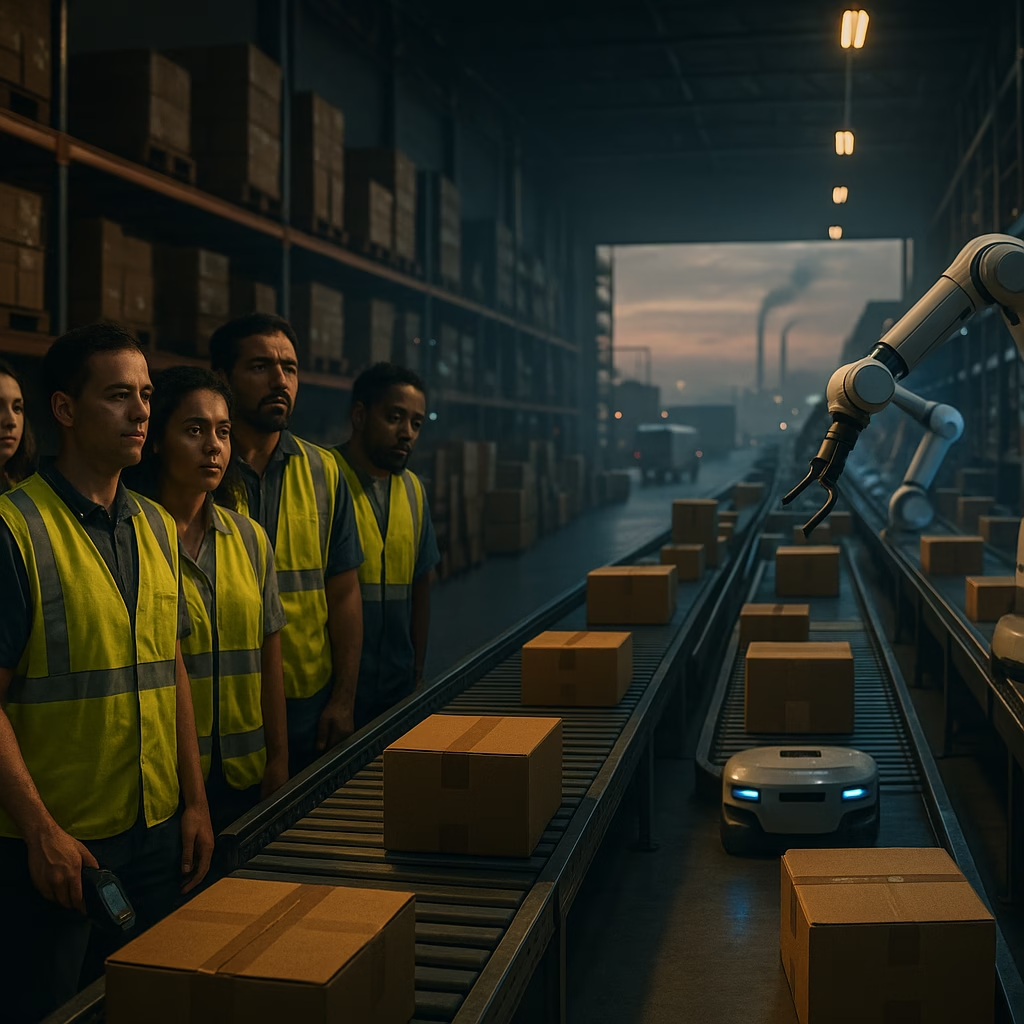Americans Divided Over AI’s Impact on Jobs and Society, Poll Shows
Artificial Intelligence (AI) is rapidly transforming industries, workplaces, and everyday life. But while tech developers hail AI’s potential to revolutionize sectors from healthcare to transportation, the general public remains uncertain—and deeply divided—over its broader societal impact. A recent poll conducted by NBC News in partnership with Hart Research Associates and Public Opinion Strategies reveals just how mixed American attitudes are toward AI, especially regarding employment, ethics, and trust.
Growing Awareness — And Concern — Around Artificial Intelligence
The NBC poll surveyed a broad cross-section of American adults and uncovered increased public awareness of AI technologies. However, this growing familiarity has also resulted in rising skepticism and anxiety about the technology’s long-term effects.
- Just 9% of Americans believe AI will do more good than harm.
- 41% say AI will do equal amounts of harm and good, signaling widespread ambivalence.
- 35% think AI will do more harm than good.
These findings highlight a growing wariness among citizens as AI becomes increasingly visible in commercial and consumer applications, from self-driving cars to facial recognition tools and personalized recommendation systems.
AI and the Future of Work: A Double-Edged Sword
One of the greatest areas of concern revealed in the poll is AI’s impact on the U.S. workforce. While proponents argue that automation and machine learning can streamline productivity and eliminate repetitive tasks, a significant portion of the public is more focused on the displacement of human jobs.
The Numbers Speak Volumes
According to the survey:
- More than 50% of respondents said they expect AI will reduce the number of available jobs within the next 10 years.
- Only 13% believe AI will create more jobs than it eliminates.
This data aligns with concerns voiced by labor unions, educators, and economists who argue that without robust policy measures—such as retraining programs or universal basic income—AI could exacerbate unemployment and income inequality.
Disproportionate Effects on Vulnerable Demographics
Experts have long noted that certain jobs—especially those involving routine manual tasks—are more susceptible to automation. These include roles in manufacturing, retail, and transportation. However, the NBC poll also found a disparity in perception along demographic lines:
- Older Americans were more pessimistic about AI’s impact on employment than younger generations.
- Workers without college degrees expressed stronger fears about job loss.
These divides raise questions about how to implement equitable transitions to an AI-augmented economy without leaving large segments of the population behind.
Trust Issues: Ethics, Bias, and Regulation
Another central theme of the NBC poll is the general mistrust surrounding AI systems. Concerns over transparency, ethical decision-making, and surveillance are preventing people from fully embracing the technology.
Trust in Leaders and Developers
When asked who they trust most to manage the future of AI, respondents displayed very little confidence in tech companies or government officials:
- 30% said universities or academic researchers were best suited to guide AI’s development ethically.
- Just 14% of people trust tech companies to handle AI responsibility.
- Only 6% say they trust the federal government to do the same.
This data underscores a crucial point: the public is demanding not only innovation but also accountability and ethics in AI development.
Racial Bias and Discrimination Fears
AI systems, especially those grounded in machine learning, depend on historical data—which can include outdated or discriminatory patterns. High-profile cases of bias in facial recognition software and predictive policing tools have amplified concerns over systemic inequality in AI outcomes.
Americans are starting to recognize this. According to the poll:
- Almost two-thirds of respondents worry that AI could worsen racial and gender discrimination.
Analysts say this highlights the need for federal oversight and mandatory fairness audits in AI systems that affect public life, such as hiring algorithms or sentencing recommendations.
Public Policy and the Need for Regulation
One of the clearest takeaways from the poll is that Americans are calling for stronger governance of AI technologies. While innovation is welcome, most people want it accompanied by clear rules, guidelines, and ethical boundaries.
Bipartisan Demand for Oversight
In an unusually bipartisan consensus, the survey shows that both Democrats and Republicans support some form of AI regulation. Whether it’s data privacy, job impacts, or military applications, voters want a stronger framework for how AI is researched, developed, and deployed.
Federal agencies and lawmakers have taken note. In 2020, the National Institute of Standards and Technology (NIST) began developing a framework for AI trust and security. More recently, the White House has proposed the “AI Bill of Rights” outlining user protections against algorithmic discrimination, data misuse, and surveillance abuse.
Conclusion: Are We Ready for the AI Future?
The NBC poll paints a complex picture. While Americans recognize the transformative power of AI, they remain deeply divided over its potential risks and rewards. There is a shared hope that AI can improve lives—but only if it’s kept in check by robust policies, oversight, and transparency.
As we navigate this rapidly evolving landscape, here are the key takeaways we must consider:
- Increased public education on AI is necessary to demystify the technology and its implications.
- Stronger federal regulations and oversight are crucial to ensure ethical and fair AI practices.
- Workforce retraining and inclusive policy measures can help mitigate job displacement.
- Cross-sector collaboration—between academia, business, and government—is needed to steer AI toward the public good.
AI is not inherently good or bad—it’s a tool. The question that remains is: Can we ensure it’s a tool that serves all of humanity?
< lang="en">







Leave a Reply